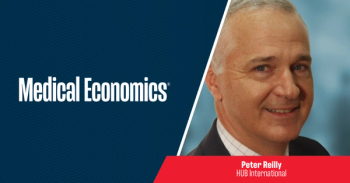
Your Voice: Healthcare reform is still possible, but Obamacare must go
Obamacare, PCP burdens and comparing U.S. healthcare to other countries are the hot topics of the latest Your Voice.
Thank you for your magazine entitled “Obamacare fails,” on July 25, 2016 which included the article, “U.S. physicians tell us why they hate healthcare reform,” with a red ink “F” circled and superimposed on the White House. While I understand and appreciate the message, I think the words you choose were misleading.
Physicians and patients of this country wanted reform of health insurance, government entitlement programs, tort/malpractice liability, a stop to hospital charge master overbilling schemes and big pharma brand pricing.We want physician practice rights and patient rights to choose and buy the care they want, when and where they want it.
We were lectured by President Obama dozens of times in speeches on television: “You can keep your doctor... you can keep your insurance... your family will save $2500 per year.”
The so called, “Patient Protection and Affordable Care Act,” or ACA was passed in the dark of night, closed congressional session, on a weekend, near Christmas. The citizens of our nation were denied the open discussion, debate and review promised by the President and Democratic members of Congress.
Passage was greased with favors, gifts, and outright bribes. “You’ll have to pass it to see what’s in it,” said Senator Nancy Pelosi of California. Every individual with any common sense realizes that you don’t make a law, let alone a huge taxpayer-funded entitlement program, without open discussion, review and meaningful due process.
We now know, thanks to Rich Weinstein of Philadelphia exposing Jonathan Gruber’s videotaped statements, that ACA/Obamacare was written in a “convoluted way, to deceive the general public.”
The President’s statements and promises also turned out to be volitional lies. Private physicians were largely excluded from Obamacare plans. Many working citizens had their insurance policies canceled, and lost their employer-sponsored health insurance. They were mandated to buy more expensive plans from the so-called “insurance exchanges” which compromise their data privacy upon registration. State-funded exchanges are going bankrupt or hemorrhaging taxpayer dollars. Not to mention, more than half of insurance co-ops have failed.
ACA/Obamacare is perhaps the largest tax ever levied upon the citizens and the most expensive failure in our nation’s history.
There are many possible ways to accomplish all the goals we want and were promised. ACA/Obamacare is an abomination on U.S. history and its people, perpetrated by and administration and Congress with a cronyism agenda at the expense of our nation’s people.
Now we are faced with politicians who promise to “fix” it or double down with government single-payer healthcare. I vote instead for full repeal. Free-market individual insurance policies should be sold across state lines so that competition can produce efficiency and allow for a plethora of insurance options at market determined prices. True high-deductible catastrophic plans would quickly become inexpensive.
Patients can buy innovative programs such as direct primary care, DPC, to serve most medical needs and the prevention of disease. Health Savings Accounts should be allowed to fund all medical expenses including over-the-counter prescriptions and all “low hanging fruit.”
True free markets at work would demand hospital health systems and providers of care post honest prices. Patients could use their own value systems and resources to select what they want, where they want, and what they are willing to pay.
Only then, will everyone (the true stakeholders, physicians and patients) have “skin in the game.” Medicare and Medicaid could also be slowly converted to this efficient, high-value system.
Craig Wax, DO
Mullica Hill, NJ
Medical leaders have saddled PCPs with more burdens
I read with interest the various report cards on the different challenges medicine is currently facing.
As a general internal medicine physician, the primary care incentive pay article was particularly interesting. I think it is important to understand that this bonus was simply a lifeline to primary care practices that had heavy exposure to Medicare patients.
In a busy and mature internal medicine practice, Medicare is frequently well over 50% of the practice. In my case, the bonus amounted to an additional one half month of revenue. This is certainly a significant amount of money for any practice. I don’t think there is any real expectation from CMS that this incentive pay with change behaviors.
It was simply an attempt to help maintain financial stability for these practices.
Unfortunately, our leaders in organized medicine were focused solely on getting rid of the SGR. During their rush to make a deal on this, they basically gave away too much. They have saddled primary care with additional burdens under the MIPS. Eventually, specialists will have some of these burdens as well.
However, primary care will remain the most heavily burdened with these programs. In addition to having more bureaucratic burdens, we gave up the money from the primary care incentive program. I don’t think there was anything similar that was given up by the specialist community.
John S Matlock, MD
San Antonio, Texas
Shouldn’t compare U.S. healthcare to other countries
Timothy Norbeck, CEO of the Physicians Foundation in his blog “U.S. healthcare system isn’t to blame for citizens’ health woes” (July 9, 2016) made several good observations that critics of the health system should think about.
They are wrong to focus on health statistics alone and use them to compare them with those of other countries.
Why? Because without including important political differences that impact healthcare, they are misleading. For example, it is telling that other countries that spend more on social benefits, including disability and housing, spend less on medical illnesses because poverty and poor living conditions are a major cause of poor health and chronic disease.
And the personal factor is important too. In many instances obesity, too much smoking, alcoholism, and lack of exercise all contribute to chronic illnesses like diabetes, hypertension, heart disease, and mental problems.
Health education starting in elementary school and continuing on through high school are two good ways to improve the health and happiness of our citizens.
Edward Volpintesta MD
Bethel, CT
Newsletter
Stay informed and empowered with Medical Economics enewsletter, delivering expert insights, financial strategies, practice management tips and technology trends — tailored for today’s physicians.






